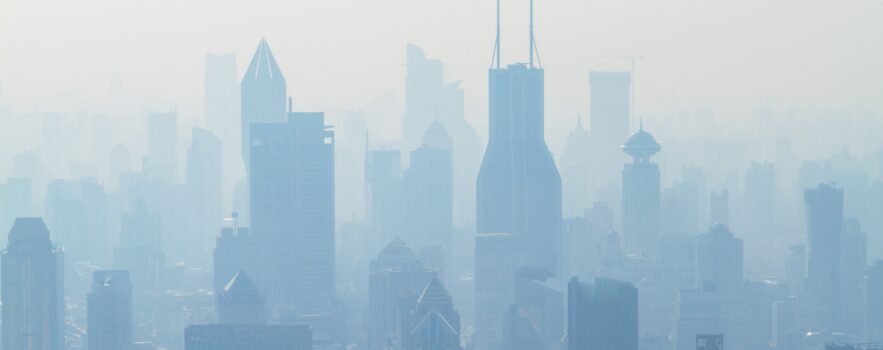COVID-19 related restrictions resulted in substantial reductions in air pollution in low- and middle- income countries (LMIC), offering a ‘real world’ example of how concerted policy efforts could make a major difference to the environment.
The findings emerged from a systematic review and meta-analysis of papers reporting air quality in 27 LMICs, published today in Science of the Total Environment and carried out by scientists at the Medical Research Council (MRC) Epidemiology Unit, University of Cambridge. The study also highlights large gaps in global air pollution data.
The World Health Organisation recognises air pollution as one of the greatest environmental threats to human health. It disproportionately affects LMIC settings where, in contrast to decreases recently seen in high-income countries, air pollution has been increasing alongside rapid urbanisation. By 2050, 90% of the growth in urban populations will take place in Asia and Africa.
The implementation of a variety of measures to slow down the spread of COVID-19 in most LMICs provided an unprecedented opportunity to learn about the impact of changes in human activity on air pollution.
In order to quantify the changes in concentrations of air pollutants in LMICs during the pandemic, the team of public health and air quality researchers at the MRC Epidemiology Unit collated and analysed data from 256 research papers published between 2019 and 2022. This data covered 368 different cities and towns in 27 countries across Asia, Europe, North Africa, and North and South America, and provided 3,818 data points for analysis.
Their analysis found substantial reductions in air pollutants – including black carbon, carbon monoxide, nitric oxide, nitrogen dioxide, oxides of nitrogen, PM10 and PM2.5 particulates, and sulphur dioxide – in urban areas across all 27 LMICs following the introduction of COVID-19 restrictions.
Their study demonstrates how rapid and substantial changes in air quality are achievable through concerted and coordinated changes in human activity.
Study co-author Dr Haneen Khreis of the MRC Epidemiology Unit said:
The decline in air pollution that we observed in low- and middle- income countries following the introduction of COVID-19 restrictions shows the scale of achievable air quality improvements through concerted and coordinated changes in human activity, in vulnerable areas where progress has been too slow and inequalities persist.
“While the specific situation of the COVID-19 pandemic is not something we can, or would seek to replicate, these findings allow us to understand the possible reductions, especially in traffic-related air pollutants, and model the potential health benefits if these air pollution reductions were sustained.
“Cities have access to a wide range of policy measures to reduce air pollution, and earlier this year we published an interactive visualisation tool exploring them. However, behavioural and land-use policies that can somewhat replicate changes observed during the pandemic by reducing the need for motorized travel and changing behaviours are the least studied and enacted, especially in LMICs. They are neglected in favour of supply-side measures catering for an existing and increasing travel demand. Behavioural and land-use policies deserve more attention and can have long-lasting and knock-on positive impacts.”
The authors also report that although data came from research papers reporting changes in 27 different countries, over 75% of these reported changes in either India or China, and there were no papers reporting changes in urban areas of sub-Saharan Africa, Oceania, or the Caribbean.
Study co-author Dr Annalan Navaratnam, also of the MRC Epidemiology Unit, said:
The focus on China and India most likely reflects better infrastructure to monitor ground-level air pollution concentration, as well as greater research capacity, compared to other low- and middle- income countries.
“These results draw attention to a global imbalance in air pollutant data and research, inhibiting the potential for data-driven policies. Further work is needed to improve pollution concentration estimation where data is lacking, along with more transparent and rigorous data reporting.”
The authors call for an increase in air pollution monitoring capacity in low- and middle-income settings, and also for a more systematic approach to air quality analysis and reporting to enable better comparison between countries.
This work was funded principally by the European Research Council (ERC) under the Horizon 2020 research and innovation programme.
Reference
- Navaratnam, AMD et al. Systematic review and meta-analysis on the impact of COVID-19 related restrictions on air quality in low- and middle-income countries. Science of the Total Environment. 07 November 2023; DOI:10.1016/j.scitotenv.2023.168110

 MRC Epidemiology Unit
MRC Epidemiology Unit